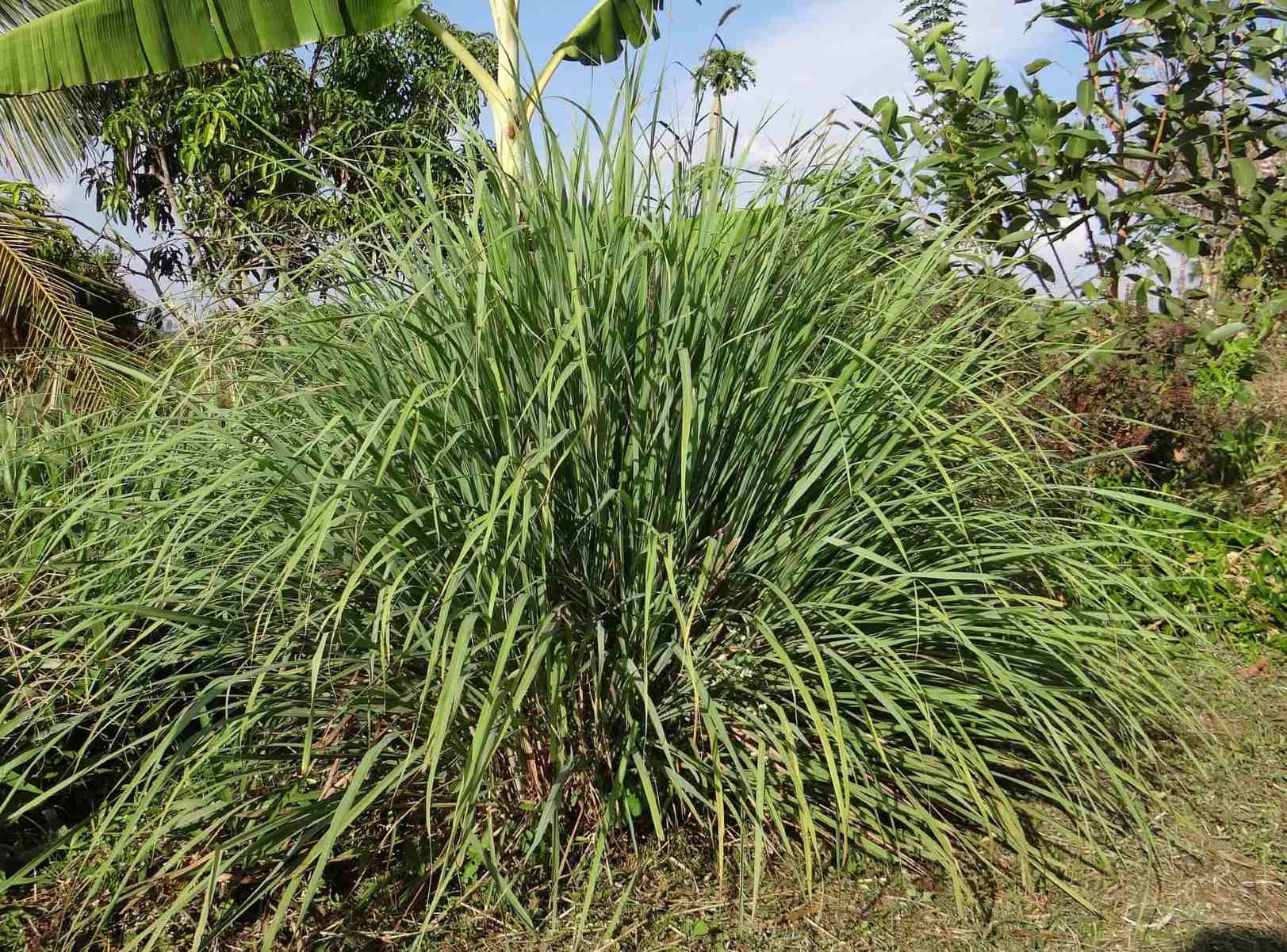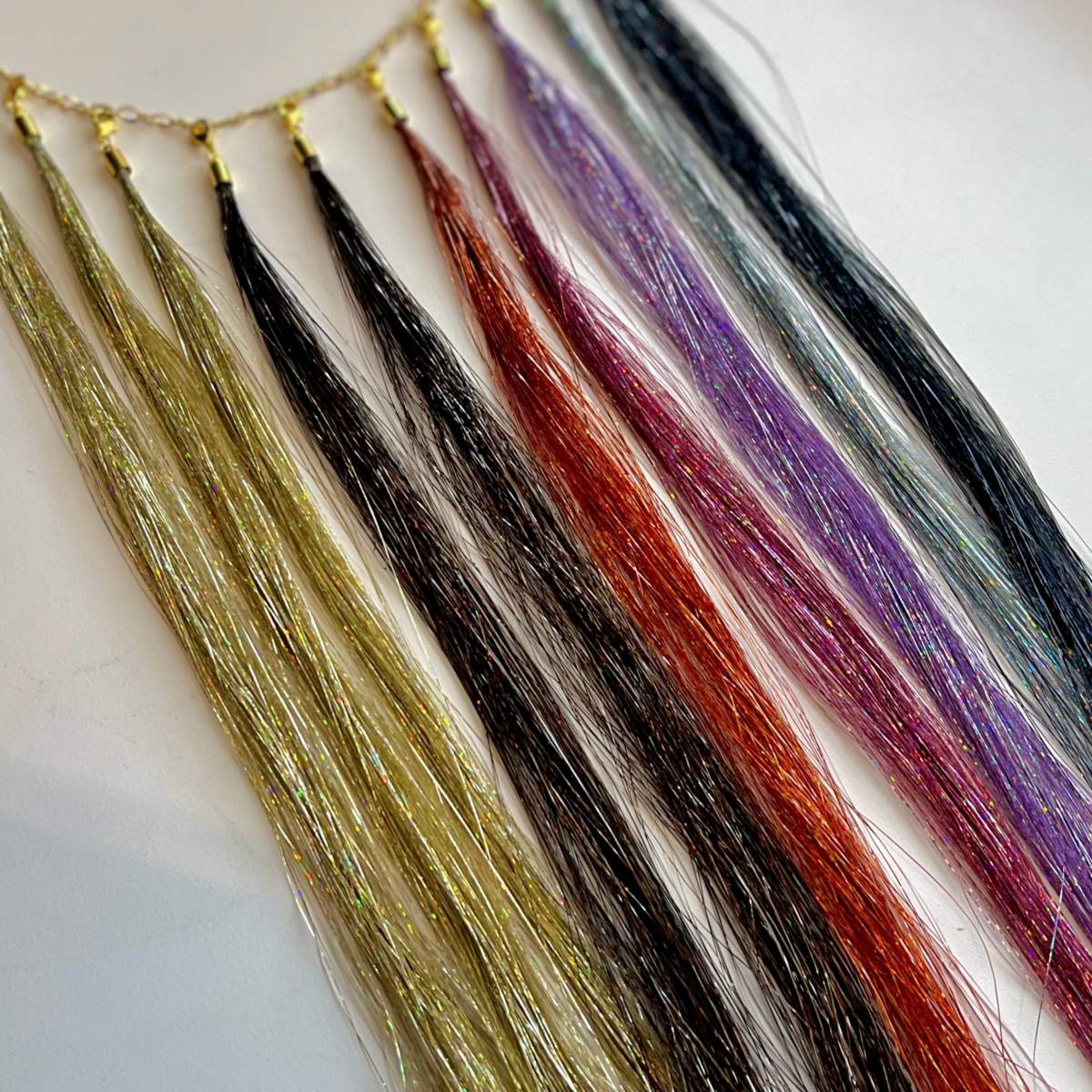Home>Health and Wellness>Lemongrass: The Ultimate Mosquito Repellent


Health and Wellness
Lemongrass: The Ultimate Mosquito Repellent
Published: February 16, 2024
Discover the natural mosquito-repelling properties of lemongrass. Enhance your health and wellness with this ultimate solution. Keep mosquitoes at bay effortlessly!
(Many of the links in this article redirect to a specific reviewed product. Your purchase of these products through affiliate links helps to generate commission for Regretless.com, at no extra cost. Learn more)
Table of Contents
Introduction
Lemongrass is a versatile and aromatic herb that has been celebrated for its myriad of uses, ranging from culinary applications to medicinal properties. One of its most notable attributes is its effectiveness as a natural mosquito repellent. As the warmer months approach, the pesky presence of mosquitoes can be a cause of discomfort and concern for many. However, lemongrass offers a refreshing alternative to chemical-laden repellents, providing a natural and fragrant solution to ward off these unwanted insects.
In this comprehensive guide, we will delve into the world of lemongrass and explore its remarkable potential as a mosquito repellent. From understanding the composition of lemongrass to learning how to harness its repellent properties, this article will equip you with the knowledge to embrace a more natural approach to mosquito protection. Furthermore, we will uncover the various benefits of using lemongrass as a repellent, shedding light on its holistic advantages beyond just insect deterrence.
Join us on this journey as we uncover the wonders of lemongrass and discover how this humble herb can serve as the ultimate solution to keeping mosquitoes at bay. Whether you are seeking an eco-friendly alternative or simply appreciate the invigorating scent of lemongrass, this guide will empower you to harness the repellent prowess of this remarkable plant.
What Is Lemongrass?
Lemongrass, scientifically known as Cymbopogon citratus, is a perennial plant with a distinct lemony aroma and flavor. It belongs to the grass family and is native to tropical regions, including Southeast Asia, Africa, and Australia. This herb is renowned for its diverse applications, spanning culinary, medicinal, and ornamental uses.
The plant features tall, slender stalks with a bulbous base, similar in appearance to spring onions. Its leaves are long and slender, with a vibrant green hue. Lemongrass is characterized by its refreshing citrus scent, which is attributed to the presence of citronella, a natural oil known for its insect-repelling properties.
In culinary realms, lemongrass is often utilized to infuse dishes with its zesty flavor, particularly in Southeast Asian cuisine. It is commonly used in soups, curries, teas, and marinades, imparting a bright and citrusy essence to the prepared dishes. Beyond its culinary uses, lemongrass is esteemed for its therapeutic properties, with its essential oils being extracted for aromatherapy and medicinal applications.
The plant contains key compounds such as citral, geraniol, and citronellal, which contribute to its distinct fragrance and potential health benefits. These compounds also play a pivotal role in making lemongrass a natural deterrent for mosquitoes and other insects, offering a non-toxic alternative to chemical repellents.
Lemongrass is often cultivated in home gardens and is prized for its ornamental value, adding a touch of elegance with its graceful foliage and refreshing aroma. With its versatility and numerous benefits, lemongrass has garnered widespread popularity, transcending geographical boundaries to become a cherished component of various cultures and traditions.
In the subsequent sections, we will delve deeper into the specific attributes of lemongrass that make it an effective natural mosquito repellent, exploring the various methods of utilizing this remarkable herb to fend off mosquitoes and reap its holistic advantages.
Lemongrass as a Natural Mosquito Repellent
Lemongrass stands out as a potent natural mosquito repellent, offering a compelling alternative to conventional chemical-based repellents. The key to its effectiveness lies in its high citronella content, a natural oil known for its ability to repel mosquitoes and other insects. Citronella works by masking scents that attract mosquitoes, thereby deterring them from approaching and biting. This natural approach to mosquito protection is not only eco-friendly but also free from the potential harmful effects associated with synthetic repellents.
The essential oils present in lemongrass, particularly citral and geraniol, contribute to its potent repellent properties. These compounds not only emit a refreshing citrus fragrance but also serve as a formidable barrier against mosquitoes. Lemongrass has been found to be particularly effective in warding off the Aedes aegypti mosquito, which is known to transmit diseases such as dengue fever, Zika virus, and chikungunya.
Furthermore, lemongrass offers a sustainable and renewable solution to mosquito control. By harnessing the natural repellent properties of this herb, individuals can reduce their reliance on single-use plastic containers and aerosol sprays commonly associated with commercial mosquito repellents. This aligns with the growing global emphasis on embracing sustainable and eco-conscious practices, making lemongrass an ideal choice for those seeking environmentally friendly alternatives.
In addition to its practical repellent qualities, lemongrass also adds a delightful sensory dimension to mosquito protection. The invigorating citrus aroma of lemongrass creates a pleasant olfactory experience, unlike the harsh and often overpowering scents of synthetic repellents. This aromatic aspect enhances the overall experience of utilizing lemongrass as a mosquito repellent, transforming a functional necessity into a sensory delight.
As we delve deeper into the diverse applications of lemongrass, it becomes evident that this humble herb possesses an array of benefits beyond its primary role as a mosquito repellent. The subsequent section will illuminate the various methods of using lemongrass to effectively repel mosquitoes, empowering individuals to embrace a natural and holistic approach to insect deterrence.
How to Use Lemongrass as a Mosquito Repellent
Lemongrass Oil
Lemongrass can be utilized in various forms to effectively repel mosquitoes. One of the most popular methods is through the use of lemongrass essential oil. This concentrated oil is derived from the leaves and stalks of the lemongrass plant and is revered for its potent mosquito-repelling properties. To create a simple and natural mosquito repellent spray, combine a few drops of lemongrass essential oil with a carrier oil such as coconut oil or jojoba oil. This blend can be applied to the skin to provide a protective barrier against mosquitoes, offering a fragrant and chemical-free alternative to commercial repellents.
Read more: The Surprising Way Cinnamon Repels Ants
Lemongrass Candles and Incense
Another effective way to harness the mosquito-repelling prowess of lemongrass is through the use of lemongrass-scented candles and incense. These products are often infused with lemongrass essential oil, emitting a delightful citrus fragrance while simultaneously deterring mosquitoes. Lighting lemongrass candles or incense sticks in outdoor settings can create a pleasant ambiance while serving as a natural barrier against mosquitoes, making them ideal for al fresco gatherings and outdoor leisure activities.
Planting Lemongrass
For those seeking a natural and low-maintenance approach to mosquito control, cultivating lemongrass plants in outdoor spaces can yield long-term benefits. The presence of lemongrass in gardens, patios, and other outdoor areas acts as a natural deterrent for mosquitoes, reducing their presence in the vicinity. Additionally, the lush foliage of lemongrass plants adds a touch of greenery to outdoor spaces, enhancing their aesthetic appeal while providing a sustainable solution to mosquito management.
Lemongrass Room Sprays
Lemongrass-infused room sprays offer a versatile and convenient means of repelling mosquitoes indoors. These sprays, often crafted with natural ingredients, can be used to freshen indoor spaces while simultaneously serving as an effective mosquito deterrent. By misting lemongrass room spray in living areas, bedrooms, and other indoor environments, individuals can create a fragrant and mosquito-free atmosphere without the use of synthetic chemicals.
Lemongrass Sachets
Lemongrass sachets, filled with dried lemongrass leaves and stalks, can be strategically placed in closets, drawers, and other enclosed spaces to repel mosquitoes and impart a refreshing aroma. These sachets not only serve as natural mosquito repellents but also contribute to maintaining a pleasant and insect-free environment within enclosed storage areas.
By incorporating these diverse methods of utilizing lemongrass as a mosquito repellent into daily routines, individuals can embrace a natural and holistic approach to mosquito protection. Whether through the use of essential oils, candles, plants, or sachets, lemongrass offers an array of options for effectively repelling mosquitoes while enhancing the sensory experience of the surrounding environment.
Benefits of Using Lemongrass as a Mosquito Repellent
Utilizing lemongrass as a mosquito repellent offers a multitude of benefits that extend beyond its primary function of insect deterrence. From its natural and eco-friendly attributes to its aromatic and therapeutic qualities, lemongrass presents a holistic solution to mosquito control.
1. Natural and Eco-Friendly
Lemongrass serves as a sustainable and renewable alternative to chemical-laden mosquito repellents. By harnessing the repellent properties of this herb, individuals can reduce their environmental impact and minimize the reliance on synthetic products, contributing to eco-conscious practices. This aligns with the global movement towards embracing natural and sustainable solutions for everyday needs.
2. Non-Toxic and Safe
Unlike conventional mosquito repellents that often contain harsh chemicals, lemongrass offers a non-toxic and safe approach to mosquito protection. The use of lemongrass as a repellent eliminates the potential exposure to harmful synthetic compounds, making it a suitable choice for individuals seeking natural and gentle alternatives, especially for children and pets.
3. Aromatic and Refreshing
The invigorating citrus fragrance of lemongrass creates a pleasant olfactory experience, enhancing the ambiance of indoor and outdoor spaces. Unlike the overpowering scents of synthetic repellents, the natural aroma of lemongrass adds a refreshing dimension to mosquito protection, transforming the act of repelling insects into a sensory delight.
4. Versatile Applications
Lemongrass offers diverse methods of utilization, from essential oil-based repellents to candles, incense, and room sprays. Its versatility allows individuals to integrate lemongrass into various aspects of daily life, ranging from personal mosquito protection to creating fragrant and insect-free environments in homes and outdoor settings.
5. Therapeutic Properties
Beyond its role as a mosquito repellent, lemongrass possesses therapeutic properties that contribute to overall well-being. The essential oils present in lemongrass are known for their calming and stress-relieving effects, making it an ideal choice for individuals seeking a holistic approach to insect deterrence while benefiting from its potential mood-enhancing qualities.
6. Aesthetic Enhancement
Cultivating lemongrass plants in outdoor spaces not only serves as a natural deterrent for mosquitoes but also adds a touch of greenery and elegance to gardens and patios. The lush foliage of lemongrass plants enhances the visual appeal of outdoor areas, contributing to a harmonious and insect-free environment.
By embracing the use of lemongrass as a mosquito repellent, individuals can experience a seamless integration of natural, aromatic, and holistic mosquito protection into their daily lives. This approach not only fosters a deeper connection with nature but also promotes a sustainable and eco-conscious lifestyle, aligning with the growing global emphasis on embracing natural and renewable alternatives for everyday needs.
Precautions and Considerations
When utilizing lemongrass as a mosquito repellent, it is important to consider certain precautions to ensure safe and effective use. While lemongrass offers a natural and eco-friendly alternative to conventional repellents, understanding the following considerations can enhance the overall experience of incorporating lemongrass into mosquito protection routines.
Skin Sensitivity
Before applying lemongrass essential oil or lemongrass-based repellents directly onto the skin, it is advisable to conduct a patch test to assess individual sensitivity. While lemongrass is generally well-tolerated by most individuals, some may experience skin irritation or allergic reactions. Diluting lemongrass essential oil with a carrier oil can help mitigate the risk of skin sensitivity, ensuring a gentle and safe application.
Avoiding Contact with Eyes
When using lemongrass-based repellents, it is crucial to avoid contact with the eyes. Direct contact with the eyes can cause irritation and discomfort. If accidental contact occurs, rinsing the eyes with water and seeking medical attention if irritation persists is recommended. By exercising caution and applying repellents away from sensitive areas such as the eyes, individuals can minimize the risk of irritation.
Pets and Children
While lemongrass is considered safe for use around pets and children, it is advisable to exercise caution, especially when using concentrated essential oils. Pets and children may have heightened sensitivity to certain scents and substances. When using lemongrass-based products, it is prudent to ensure proper ventilation in indoor spaces and to keep repellents out of reach of pets and young children to prevent accidental ingestion or exposure.
Allergies and Sensitivities
Individuals with known allergies to lemongrass or related botanicals should exercise caution when using lemongrass-based repellents. Allergic reactions can manifest as skin irritation, respiratory discomfort, or other symptoms. Consulting with a healthcare professional before incorporating lemongrass into mosquito protection routines is advisable for individuals with known sensitivities.
Storage and Handling
When storing lemongrass essential oil and related products, it is important to keep them in a cool, dry place away from direct sunlight. Proper storage helps maintain the integrity and efficacy of the products. Additionally, handling essential oils and concentrated lemongrass-based products with care, including ensuring secure bottle closures and avoiding spillage, minimizes the risk of accidental exposure and ensures safe usage.
By being mindful of these precautions and considerations, individuals can maximize the benefits of using lemongrass as a mosquito repellent while ensuring a safe and enjoyable experience. Embracing natural and holistic solutions to mosquito protection, coupled with an understanding of safety measures, enables individuals to create an environment that is both insect-free and conducive to overall well-being.
Conclusion
In conclusion, lemongrass emerges as a remarkable and multifaceted solution to the perennial challenge of mosquito protection. Its natural repellent properties, derived from the high citronella content and essential oils, position it as a compelling alternative to conventional chemical-based repellents. By harnessing the aromatic and insect-deterring qualities of lemongrass, individuals can create a fragrant and eco-friendly barrier against mosquitoes, fostering a harmonious coexistence with nature.
The versatility of lemongrass, evident in its various forms such as essential oils, candles, plants, and room sprays, offers a spectrum of options for integrating its mosquito-repelling prowess into daily life. Whether it's crafting a personalized lemongrass oil spray, lighting lemongrass-scented candles, or cultivating lemongrass plants in outdoor spaces, the potential for incorporating this herb into mosquito protection routines is vast and adaptable to diverse preferences and lifestyles.
Beyond its primary role as a mosquito repellent, lemongrass embodies a holistic approach to insect deterrence, encompassing therapeutic, aesthetic, and sustainable dimensions. Its non-toxic nature, coupled with its invigorating citrus fragrance, elevates the act of mosquito protection into a sensory experience that enhances the ambiance of indoor and outdoor environments.
The benefits of using lemongrass as a mosquito repellent extend beyond insect control, encompassing environmental consciousness, safety, and versatility. By embracing lemongrass, individuals not only safeguard themselves from mosquitoes but also contribute to sustainable practices and a deeper connection with nature.
As we navigate the changing landscape of consumer preferences towards natural and eco-conscious solutions, lemongrass stands as a beacon of sustainability and sensory delight. Its integration into everyday mosquito protection routines represents a harmonious union of practicality and well-being, fostering a balanced and mindful approach to cohabiting with nature's inhabitants.
In essence, lemongrass transcends its identity as a mere herb, evolving into a symbol of natural harmony and holistic well-being. By infusing our lives with the essence of lemongrass, we embark on a journey towards embracing the bountiful gifts of nature, one fragrant and mosquito-free step at a time.










